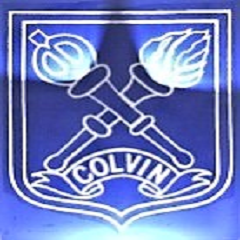
Gilbert Colvin Primary School
English
At Gilbert Colvin Primary School English is a core skill. Our ambition is for our children to leave Gilbert Colvin equipped with highly proficient speaking and listening, writing and reading skills, so that they are ready for the next chapter in life.
Reading
Words are not just letters on a page; reading enables our children to access knowledge, develop empathy and visit new worlds. Our systematic and strategic approach to the teaching of reading supports this at every level. We promote reading for pleasure, information and instruction. Our intent is that all children don’t just read fluently and with confidence, but with a depth of understanding to become accomplished and enthused readers.
Phonics
Children begin their reading journey in EYFS using the Read Write Inc phonics scheme. This enables them to move through the knowledge and skills of recognising individual letter sounds, learning to blend the sounds into words, developing some fluency and beginning to comprehend. Children in these classes also have a high quality class text to share. KS1 take home two RWI books. One that they have been reading in class and a new one linked to the phonics knowledge they are learning. These books are changed weekly. Weekly phonics QR codes are sent home to empower parents to share and review current phonics knowledge and skills with their children to support children’s progress.
Children in KS2 who are identified as needing additional support with phonics have a daily RWI phonics intervention.
English Lessons – Reading Focus
Our ambitious English curriculum is built upon well-chosen, exciting, high-quality texts. Through understanding and immersing themselves in the characters, settings and plots, children develop the skills of inference, deduction and a love of language. The set texts have been specifically chosen for each year group and, where appropriate, other curriculum areas have been linked to the texts to deepen children’s contextual understanding.
Learning and developing a love for new vocabulary is an integral part of our reading strategy. Prior to reading a new section of the core text, teachers introduce unfamiliar vocabulary to the children in context, using a range of strategies (e.g. pre-teach, visuals, role play etc). This enables children to have an increased understanding of the texts and confidence with using new vocabulary.
During the reading focus part of English lessons, pupils are taught strategies to explicitly develop identified skills. These strategies are then planned into response tasks to ensure the learning is embedded.
Daily Reading for Pleasure
Children in KS2 who have age related reading and comprehension skills access the Accelerated Reader programme. They undertake termly online diagnostic comprehension assessments (STAR Reading tests) which enable teachers to match children’s reading books to their knowledge and skills. Our school library has been arranged to empower children to independently choose books within their current ‘range’ from a wide selection of fiction and non-fiction books. Once they have finished a book, children take the linked Accelerated Reader quiz which has a required pass mark to ensure that comprehension skills are developed. Teachers monitor children’s engagement with this process and support or intervene at the point of need.
To add to our reading for pleasure, the children will hear a class story at the end of the day at least three times a week.
Reading at Home
Parents are the children’s first teachers in developing their child as a reader. We encourage and expect parents to read with their child, discuss the books and new vocabulary and sign their reading journal as regularly as possible.
Writing
We believe at Gilbert Colvin, that to be a good writer, you need to be a good reader and enjoy reading. Reading is the foundation to quality writing. Our exploration of authorial intent using our well-chosen class texts provide children with models to imitate, innovate and inspire their own writing.
To make their writing more meaningful and enable them to be fully engaged in the process, children are exposed to and produce writing for different audiences and purposes in a range of genres, such as: diary entries, instructions, formal police reports, letters, discussion and persuasive writing.
Teachers meticulously plan how they will use the reading experiences from the texts to develop the writing skills of their class. High quality outcomes are achieved because children have the opportunity to go through the process of plan, revise, evaluate and edit.
Vocabulary, spelling, grammar and the standard use of English will be developed to aid writing and we intend pupils to leave school writing fluently and legibly.
Cross-curricular writing opportunities are also exploited so that children can demonstrate, develop and embed their writing skills.
We help our children to develop their understanding of English through:
- Phonics – We use the RWI scheme.
- Spelling – Spelling lists are sent home. It is taught through the texts in class and weekly spelling tests take place.
- Grammar – This is taught through the texts in class but sometimes explicit lessons are taught.
- Handwriting – Forming letters correctly, sizes and spaces are taught in KS1. From the end of Year 2 or when the children are ready, cursive handwriting is taught and expected to continue throughout KS2.
- Reading comprehension and reading strategies - Children engage in discussions and respond to challenging questions about the class texts and are taught to apply the reading strategies to their own reading.
- Speaking and listening – This is an integral part of all English units and all other subjects taught across the school.
What our Pupils think about English at Gilbert Colvin Primary School
|
 |
|
||
|
|
|||
|
 |
|
||
|
||||
|
 |
|
||
|
|

